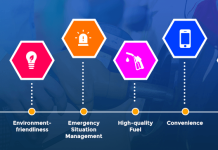Insomnia – Potassium is an important nutrient in the human body. Insufficient potassium can cause weakness, fatigue and dizziness as well as muscle cramps. Potassium is a key component of many foods, including the ones we eat most often. It can be difficult to deficient in potassium, but there are still a few situations where it is needed.
Many people are aware that red bean water, rich in sodium can reduce edema. Our bodies have a way to keep potassium in reserve and release sodium. There is a lot sodium in our bodies, and water can be easily retained. Potassium can be used to excrete excess sodium.
Potassium plays a vital role in many body functions. It is important for nerve conduction, muscle contract, body fluid balance and toxin metabolism, as well as heartbeat control, blood pressure balance and heartbeat control. Potassium-containing foods are a good option for patients with high blood pressure.
Potassium loss can lead to electrolyte imbalance. Leung Jiawei, consultant dietetican from “Dietitian’s Table”, stated that electrolyte will not affect the body if it’s slightly out of balance. But if it’s too high, the body will experience different symptoms depending on how severe it is.
* Palpitation and arrhythmia. The most serious form of potassium deficiency, which can affect the systemic circulatory system, is this: Potassium is an important mineral which regulates heart circulation.
* Gastrointestinal symptoms A mild potassium deficiency that can cause slower gastrointestinal motility or digestive disorders. They will notice a decline in appetite, which can lead to nausea, vomiting and flatulence.
* Feeling tired, anxious, or depressed. These symptoms are caused by mild potassium deficiency. Potassium plays an essential role in neuromuscular transmission. Mild deficiency can cause muscle and emotional instability.
The effects of potassium on the muscles can lead to fatigue, weakness, cramps, unresponsiveness, and muscle weakness. When it affects the nerves symptoms such as anxiety, emotional instability, irritability and insomnia can occur.
Prone to potassium deficiency: partial eclipse, frequent sweating
It is difficult to get potassium deficient in normal foods. People feel tired and deficient in potassium, which can lead to energy problems and fatigue. Liang Jiawei claimed that only extreme partial eclipses could make people seriously deficient. They often order delicate foods, such as pizza and fried chicken, and they often go out to eat. It can be hard to get enough potassium.
Potassium is eliminated from the body by sweat and urine. You will lose potassium if you sweat heavily, vomit, or have diarrhea. You should supplement potassium and trace minerals if you do hard work, are active in exercise, or have frequent vomiting.
Potassium supplementation diet – Eat more fruits, vegetables, and less salty foods
There are many vegetables and fruits rich in potassium such as sweet potatoes, dark green vegetables, sweet potatoes.
Bananas are a well-known, high-potassium fruit. The bananas have 368mg potassium per 100 grams. Other sources of potassium include durian, spinach, 510mg; white amaranth 500mg; red amaranth 445mg; pumpkin 426mg; and others such as durian, which have 440mg. .
Bananas are more than 100g, so they are easy to eat. However, high-potassium vegetables can cause some potassium loss during cooking.
The human body has two mechanisms: to retain sodium and excrete potassium, and to retain potassium but excrete sodium. The more potassium that you ingest, the lower your sodium intake. The body cannot retain potassium if it is influenced by taste or saltiness. It will have to expel it. Additionally, meat contains potassium, but also sodium, fat, and calories. You should not choose meat as your first choice for potassium supplementation.
Liang Jiawei mentioned that potassium is a electrolyte that can be difficult to retain in the body. It also has a high excrettion rate. Normally, hyperkalemia will not be caused by eating high-potassium vegetables and fruits, unless the kidneys are failing or there is a chronic condition like chronic kidney disease. Potassium is hard to retain so even if potassium has been supplemented, it will still be excreted. A balanced diet is the best option to “replete potassium”.
Patients with hypertension can eat potassium-rich foods in order to lower blood pressure. They also have the option to use low-sodium table salt. The general salt is sodium chloride and the low-sodium one is potassium chloride. This allows for lower sodium intake, as well as potassium supplementation, which can help stabilize blood pressure. You should note that patients with high bloodpressure may have chronic kidney disease so low sodium salt is not advised.


























